Yoga is an ancient practice which was originated in India. It is a practice of physical and mental activities performed to bring mental peace. Not only is it good for the psychological state, but regular practice of yoga can also provide many benefits to your body.
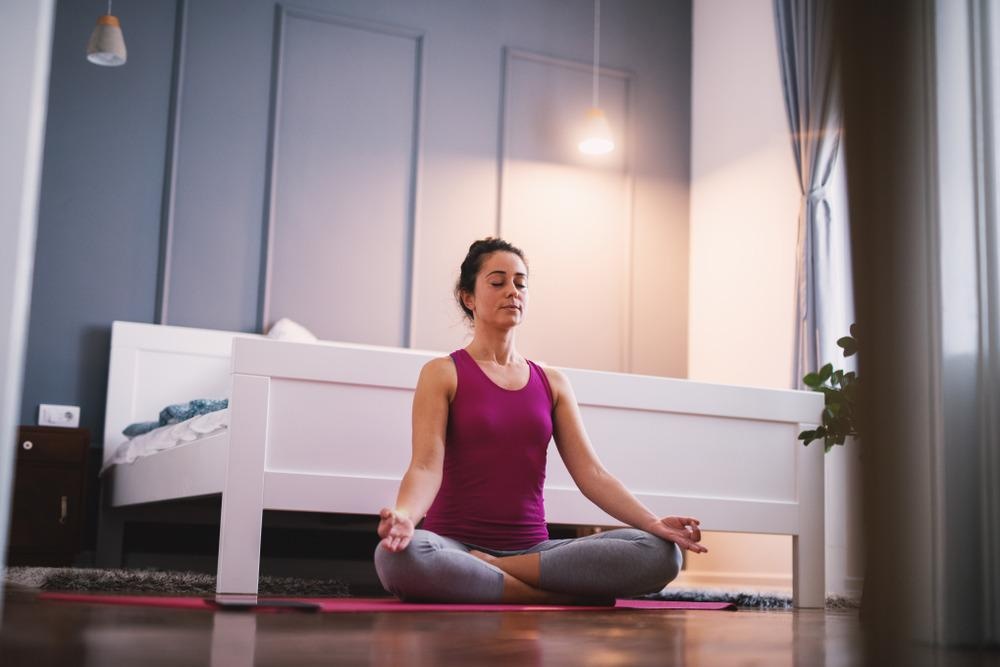
Yoga and sleep. Image Credit: Dusan Petkovic/Shutterstock.com
Many kinds of research were done throughout these years to understand yoga and the therapeutic effects of yoga. Nowadays, yoga is not only practiced in India and the rest of Asia but everywhere on the planet, and it is employed to treat many physical and mental diseases.
Can the regular practice of yoga have any impact on sleep?
Yoga does not directly affect our sleep. Yoga helps our mind and body settle down and relax, and when our body is relaxed and our mind is free from tension and anxiety, we tend to sleep peacefully. When we are stressed or anxious, our sleep cycle gets disturbed.
After a busy day, just before getting to bed, practicing some relaxing asanas can relax the body and help gather lost energy, but does yoga actually help us sleep better? 55% of individuals who practice yoga reported that they have seen differences in their sleep before and after practicing yoga.
Many people suffer from sleep disorders, with data showing that adult women suffer more from sleep disorders than men. Long-term yoga practice will certainly be helpful to improve sleep quality.
How can yoga assist you to sleep better?
- Yoga improves mindfulness, increases melatonin levels, and helps reduce sleep disturbance.
- The deep breathing technique is extremely relaxing and it induces sleep.
- The key to possessing proper sleep is regular exercise with a combination of yoga.
- Yoga and meditation help us de-stress.
- It relaxes our nervous system.
- It revives our body, makes us feel good, and provides us with a relaxing effect.
Some yoga for better sleep
Here are some yoga asanas you can try before going to bed for better sleep.
- Uttanasana (Standing Forward Bend): stand on your feet and fold the top of your body down to touch the floor with your hands. This asana is understood for reducing anxiety levels. Keep breathing while performing the asana and continue for 30-60 seconds.
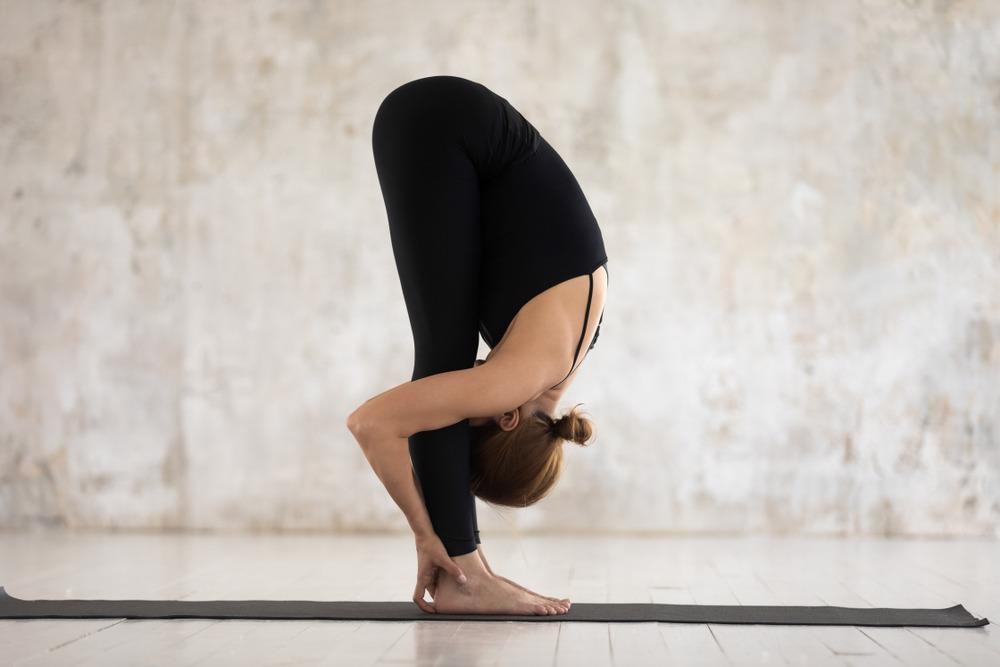
Uttanasana (Sstanding Forward Bend) pose. Image Credit: fizkes/Shutterstock.com
- Halasana (Plow Pose): before sleeping, dwell on your bed and gradually lift your legs upwards, pushing them back over your head to rest behing you. Attempt to stay in this position for 1-5 minutes and while doing it, keep your hands on the bed. Doing this helps to fall asleep fast.
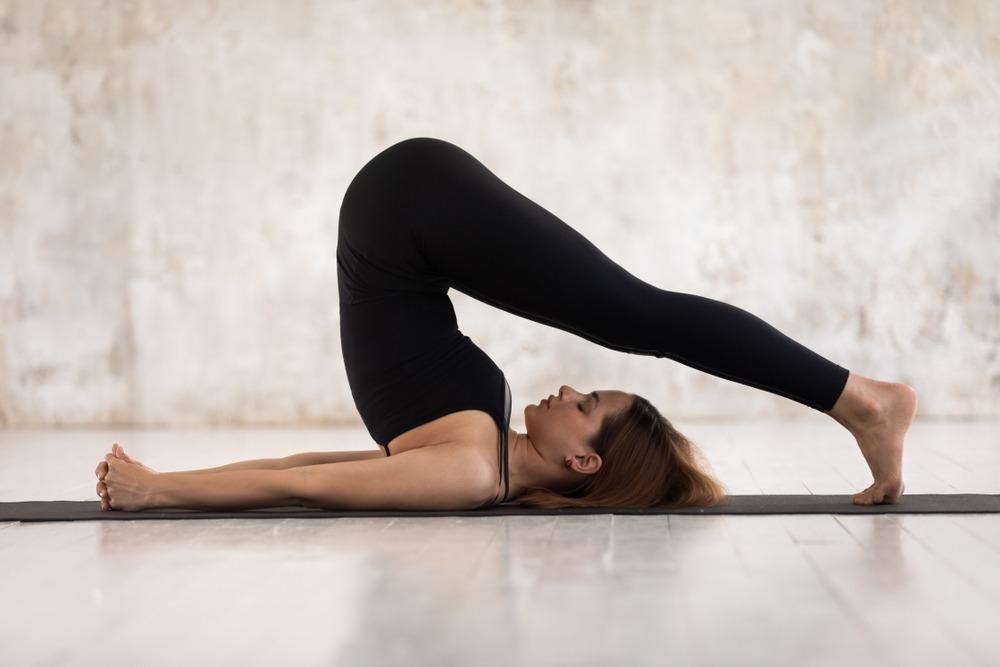
Halasana (Plow Pose). Image Credit: fizkes/Shutterstock.com
- Shishuasana (Child Pose): get on your knees and stretch out to touch the ground in front of you. This asana helps calm the nervous system resulting in a peaceful sleep.
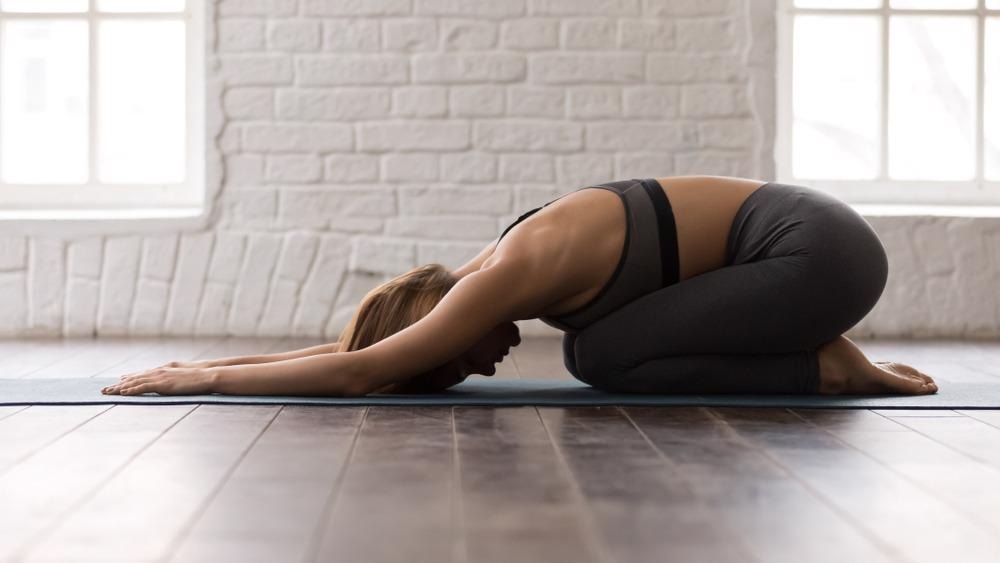
Shishuasana (Child Pose): Image Credit: fizkes/Shutterstock.com
- Viparita Karani (Legs-Up-the-Wall Pose): lie on your back and keep your legs up in the air or against a wall. Stay within the position for a few minutes. This is often the easiest asana yet has many benefits.
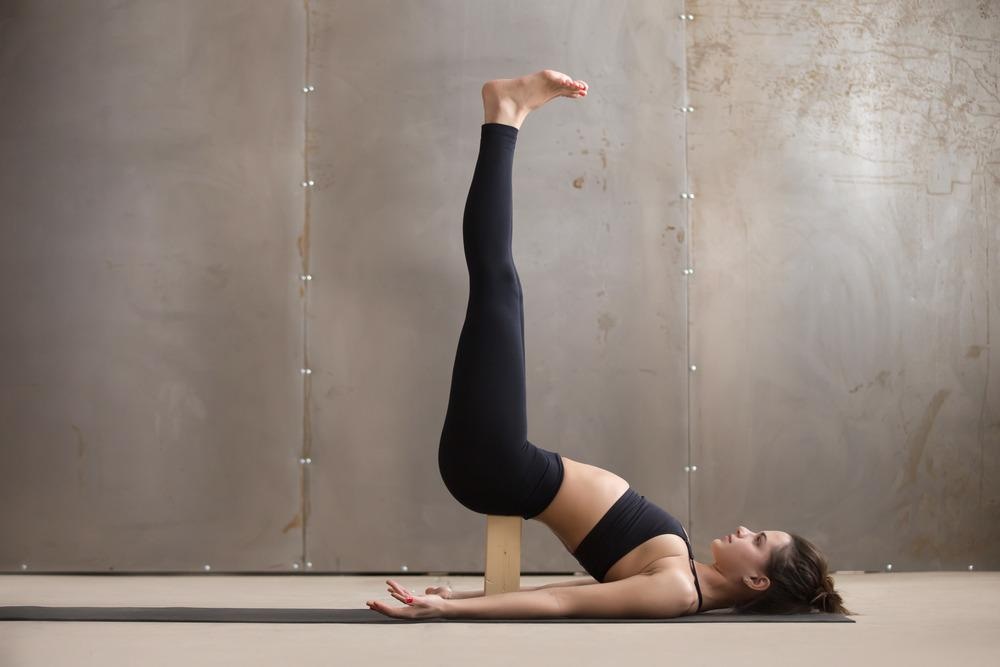
Viparita Karani (Legs-Up-the-Wall Pose). Image Credit: fizkes/Shutterstock.com
- Savasana (Corpse Pose): savasana is not only good for sleep but is the best yoga for relieving back pain. It is the simplest to perform, the procedure is to just lie down on your back, inhale and exhale, relax your muscles and release any worries or tensions.
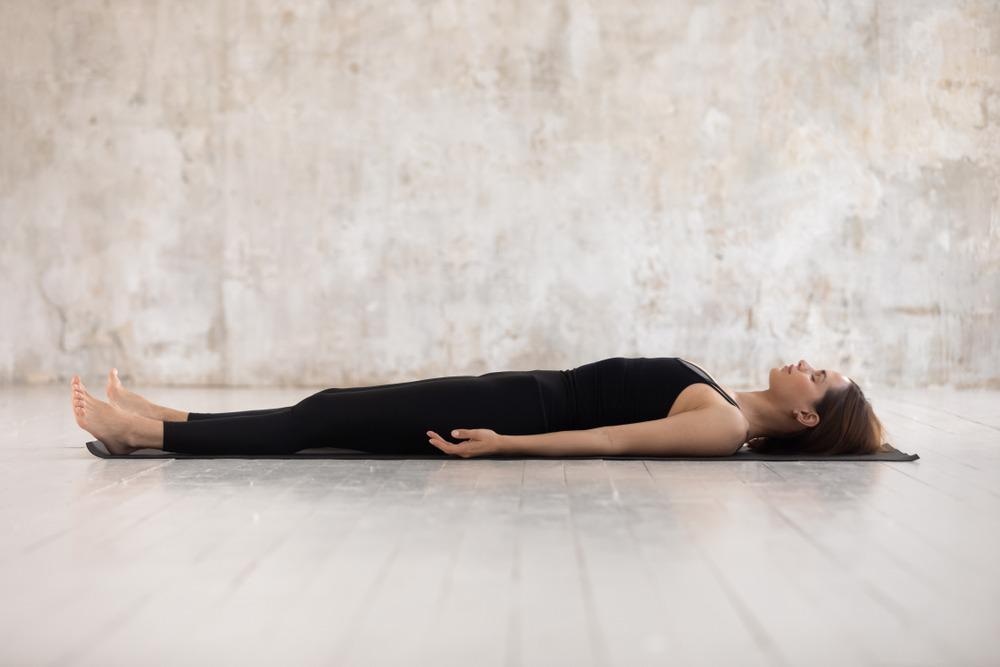
Savasana (Corpse Pose). Image Credit: fizkes/Shutterstock.com
- Suptabaddhakonasana (Reclining Bound Angle Pose): this asana is almost similar to the butterfly pose, lie on your back and obtain your feet together in the air, spread the knees in a diamond shape.
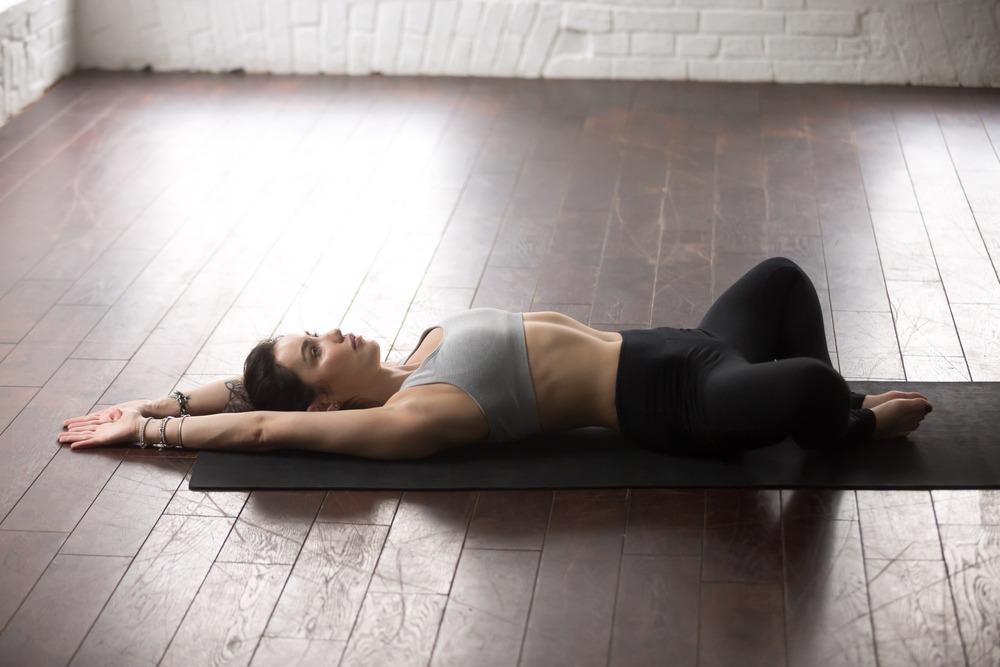
Suptabaddhakonasana (Reclining Bound Angle Pose). Image Credit: fizkes/Shutterstock.com
Why do we suffer from insomnia?
Insomnia is extremely common in today’s context. Many of us are affected by insomnia or sleep deprivation, from children to older people. Insomnia may be a disorder during which people find it difficult to fall asleep. It can cause serious consequences. Irregular sleep can lead to depression, anxiety, and lots of other mental issues. In order to take care of sleep quality, it is extremely important for a healthy lifestyle.
Insomnia is often caused by many factors including many psychological state disorders like hyperarousal, depression, anxiety, stress, fatigue, unhealthy lifestyle, excessive use of electronic devices, excessive intake of caffeine and alcohol, neurological issues, chronic physical illness, etcetera.
Other benefits of yoga
- Yoga improves physical strength, increases flexibility.
- It can help with back pain relief.
- Improves the standard of life.
- Maintains good cardio health.
- It helps lower vital signs.
- Helps reduce stress.
- Helps to keep the joints healthy.
Yoga is good in many aspects of life as it helps improve our overall health and helps us attain a better and calming mind. If we indulge ourselves with the practice of yoga, then physical and mental stress are reduced and we stay in a happy, positive state of mind helping us to be mindful, and responsive.
Reference
Further Reading
Last Updated: Mar 28, 2022